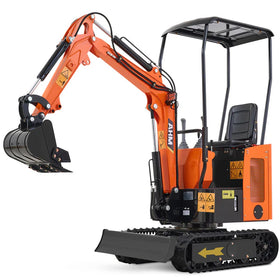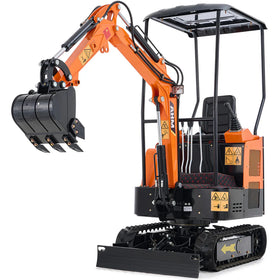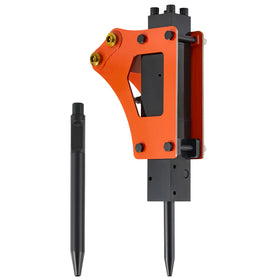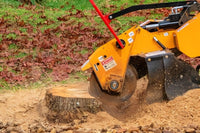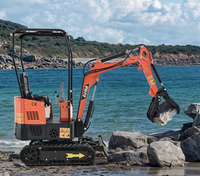As someone who's worked with these machines for years, I've seen too many good excavators sent to the scrapyard too early. The good news is that with the right care, you can keep your compact excavator running strong twice as long.
These five maintenance tips will help you extend your machine's life and save money on costly repairs.
1. Keep Your Fuel System Clean Based on Engine Type

About half of all mini excavator repairs start with fuel problems. The fix depends on what engine you have:
For Kubota Diesel Engines:
Always use a good water separator. These diesel engines have great injection systems, but they'll break down fast if water gets in.
Change your fuel filters regularly – don't wait until they look dirty.
For Briggs & Stratton Gas Engines:
Try to avoid E10 fuel when you can. The ethanol in it attracts water and can gum up your carburetors and fuel lines. I've cleaned out many fuel systems clogged with this jelly-like gunk after sitting with ethanol fuel.
Quick tip: Always fill your tank before storage. I know it seems backward, but a full tank prevents moisture buildup inside, which stops rust before it starts.
2. Check and Change Hydraulic Fluid Regularly

Your hydraulic system is what makes your excavator work. In my experience, this is where neglect hits hardest.
Look at your hydraulic fluid daily. If it's dark or cloudy, that means it's already damaging your expensive pumps.
I once changed the fluid in my 1-ton mini excavator after 500 hours when it started feeling sluggish. When I finally changed the fluid, it was black as night. The difference in performance was immediate - the controls felt responsive again and the machine had its power back.
Watch for overheating too. If the hydraulic lines are too hot to touch, you're cooking the seals from the inside. I added a cooler to my machine when working in summer heat, and it paid for itself within months through avoided repairs.
3. Keep Tracks Clean and Properly Tensioned
Your tracks and undercarriage support your entire machine. This area wears out fast but is easy to maintain.
Check Track Tension Regularly
I use the three-finger rule – if you can fit three fingers between the track and rollers at the midpoint, you're good. Adjust based on where you're working – a bit looser in mud, tighter on hard ground.
Clean your undercarriage daily if you've been in mud or clay. I've seen tracks so packed with dried clay that the rollers couldn't turn properly. Just 10 minutes with a pressure washer can save you thousands in repairs.
When you park for long periods, try to move the machine occasionally so the tracks don't develop flat spots where they touch the ground.
4. Use the Right Greasing Method for Your Machine
Let's talk about greasing your machine the right way. I've seen plenty of operators just pump grease until it oozes out and call it done. But there's more to it than that.
Run your machine first to warm up the old grease. This helps push out dirt when you add new grease. I've found this works much better than greasing a cold machine.
For most mini excavators with Kubota engines, I grease every 8 hours of use. In really dusty or wet conditions, I recommend doing it more often.
Get a right-angle attachment for your grease gun to reach those hard spots under the boom. Your knuckles will thank you, and you'll actually grease the parts that need it most.
In case you want to read more about greasing your excavator in details.
5. Operate Your Machine Properly to Prevent Damage

How you use your machine matters just as much as how you maintain it.
Always Warm Up Properly
Let diesel engines idle for 3-5 minutes before work, especially when it's cold. Even gas engines need a minute or two. This simple habit has kept many of my machines running strong for years.
Cool Down Before Shutting Off
Run at low idle for a couple minutes before turning off the engine. This prevents damage to turbochargers and bearings. I've seen operators skip this step and end up with costly repairs later.
Be Gentle With The Controls
Avoid spinning tracks on the spot when turning. Take the time to make three-point turns instead. Your tracks will last twice as long. Smooth operation also reduces stress on the hydraulic system.
Conclusion
These five simple steps have helped me keep my excavators running efficiently for years beyond what most people expect. The difference between basic maintenance and doing it right can literally double how long your mini excavator lasts.


